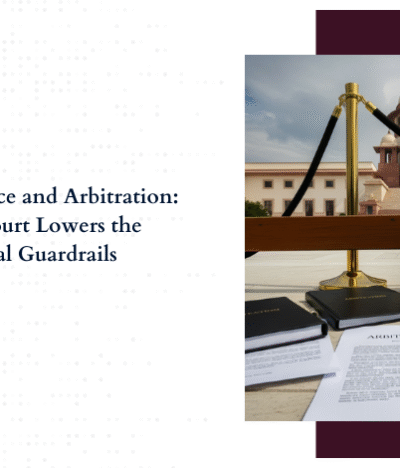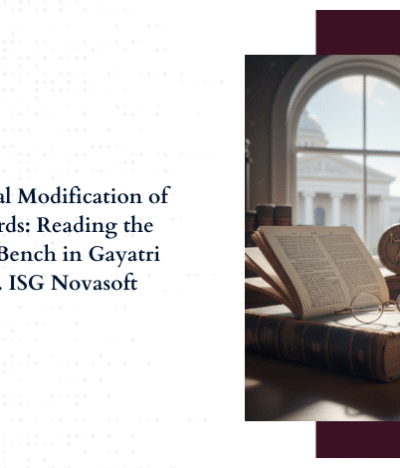How to transfer property to legal heirs? Transfer of property to legal heirs in India involves navigating a complex legal framework that ensures a smooth transition of assets. This process can be carried out through various means, including wills, gift deeds, sale deeds or intestate succession depending on the specific circumstances and the applicable personal laws. It is crucial for individuals involved in such transactions to have an understanding of the procedure for the transfer of property to legal heirs to avoid potential legal challenges and ensure that the transfer is legally binding.
In India, the transfer of property to legal heirs is governed by a diverse set of laws and regulations that vary based on religion. Testamentary succession, where the property is transferred through a will and intestate succession, where the property is distributed according to inheritance laws in the absence of a will, are the primary methods. Other legal instruments like gift deeds and sale deeds are also commonly used. Understanding the detailed procedure for the transfer of property to legal heirs is essential for a hassle-free property transfer process.
How to Transfer Property to Legal Heir in India
Transfer of property to a legal heir in India involves navigating various legal procedures to ensure the transfer is legitimate and binding. Whether through a will, gift deed, sale deed or by following the laws of inheritance, each method requires careful attention to documentation, registration and compliance with applicable legal requirements.
1. Transfer of Property through a Gift Deed
A gift deed is a document used to transfer ownership of property from one person to another without any exchange of money. This method is commonly used when transferring property to close relatives.
1.1. Drafting the Gift Deed
The first step in transferring property through a gift deed involves drafting the document. The gift deed must state the donor’s (owner) intention to gift the property to the donee (legal heir), including details of the parties involved and a declaration of voluntary transfer without consideration. The gift deed must be signed by both the donor and the donee in the presence of at least two witnesses who are competent to testify.
1.2. Acceptance by the Donee
The gift must be accepted by the donee during the lifetime of the donor.
1.3. Determine Stamp Duty
Determine the stamp duty payable for the gift deed transaction. The amount of stamp duty varies from state to state and depends on the relationship between the donor and the donee. Typically, stamp duty for gifting property to a close relative like a legal heir is lower than for non-relatives. In India, the stamp duty on gift deeds varies by state and typically ranges from 2% to 7% of the property’s value. In Delhi, stamp duty and transfer duty amount to 4% of the circle rate for female donees and 6% for male donees.
1.4. Registration of the Gift Deed
The gift deed must be registered with the local sub- registrar’s office to make it legally valid. Both the donor and donee, along with the witnesses, need to be present at the sub-registrar’s office. The sub-registrar will verify the submitted documents and, upon satisfaction, register the gift deed in the presence of the parties and witnesses.
1.5. Gather all Documents Required
Gather all required documents such as:
- Gift Deed
- Identification Proof (Aadhar Card or PAN Card)
- Proof of Ownership
- No-Objection Certificate (NOC) (if required)
- Encumbrance Certificate
- Proof of Payment of Stamp Duty
2. Transfer of Property through a Sale Deed
Transferring property through a sale deed involves the transfer of ownership from one party to another, typically involving the seller (transferor) and the buyer (transferee).
2.1. Drafting the Sale Deed
A sale deed is a document that records the transfer of property ownership from one party to another. It should include details such as the names and addresses of the parties involved, a description of the property, sale consideration and any other relevant terms and conditions.
2.2. Execution of Sale Deed
Once the sale deed is drafted, both the seller and the buyer must sign it in the presence of at least two witnesses. The buyer must pay the agreed-upon consideration amount to the seller as per the terms of the sale deed.
2.3. Stamp Duty and Registration
Stamp duty is a tax levied on the execution of certain documents, including sale deeds. The amount of stamp duty is usually calculated based on the property’s market value or the consideration amount mentioned in the sale deed.
The sale deed must be registered with the Sub-Registrar within the jurisdiction where the property is located. Both the seller and the buyer, along with two witnesses, must be present at the time of registration.
Along with the sale deed, other documents such as identity proofs, address proofs, and PAN cards of both parties, as well as property documents like the original title deed, previous sale deeds (if any), and property tax receipts, are required to be submitted to the Sub-Registrar for verification and registration.
Upon verification, the sale deed will be registered, and the Sub-Registrar will record the registration details and provide a registered copy to the buyer.
2.4. Mutation of Property
The buyer must apply for the mutation of the property in their name at the local municipal office. Once the application is processed and approved, the property records will be updated to reflect the buyer as the new owner.
3. Transfer of Property through Succession
Transfer of property through succession involves the legal process of passing ownership from a deceased individual to their heirs. This can occur either through a will (testamentary succession) or according to the laws of inheritance (intestate succession).
3.1. Testamentary Succession
Testamentary succession involves the transfer of property according to the terms specified in a valid will. The deceased (testator) designates beneficiaries to inherit assets upon their demise, ensuring the orderly distribution of the estate according to their wishes.
3.1.1. Drafting the Will
The testator drafts a will outlining how they wish to distribute their property among their heirs. The will should clearly state the testator’s name, address, and intention to dispose of their property after their death. The testator must sign the will in the presence of at least two witnesses who also sign the document.
3.1.2. Probate (If Required)
In cities like Mumbai, Chennai, and Kolkata, the probate of a will is mandatory. Upon the testator’s death, the executor submits the will to the appropriate court for probate. Probate is the legal process by which the court validates the will and confirms its authenticity. Once the court grants probate, the executor can proceed with the distribution of assets according to the terms of the will.
3.1.3. Mutation of Property
To update property records, submit an application to the local municipal or revenue office, facilitating the formal acknowledgment of ownership changes.
3.1.4. Documents Required
- Drafted Will
- Death Certificate
- Identity Proofs
- Witnesses’ Identity Proof
- Property Documents
- Legal Heir Certificate
- Succession Certificate
- Any Other Relevant Documents
3.2. Intestate Succession
Intestate succession occurs when a person passes away without leaving a valid will, resulting in the distribution of their assets according to the laws of inheritance applicable to their personal laws or community.
3.2.1. Identifying Legal Heirs
When a person dies intestate, the legal heirs are determined based on the applicable laws of intestate succession. Legal heirs typically include the deceased’s spouse, children, parents, and sometimes other relatives, depending on the personal laws applicable to the deceased.
3.2.2. Legal Heir Certificate or Succession Certificate
To establish their claim, the legal heirs may need to obtain a legal heir certificate or a succession certificate from the relevant authority or the court. This certificate lists all legal heirs and their relationship to the deceased.
3.2.3. Division of Property
Once the succession or legal heir certificate is obtained, the deceased’s property is divided among the legal heirs according to the laws of intestate succession. The applicable laws determine the shares of each legal heir, based on factors such as their relationship to the deceased and any existing statutory provisions.
Under the Hindu Succession Act of 1956, property division follows intestate succession rules. Class I heirs (spouse, children, and parents) have primary rights, inheriting equally in the absence of a will. Class II heirs (father, siblings, grandparents) follow if no Class I heirs exist. In the absence of both, the property devolves to agnates or cognates, ensuring fair asset distribution among legal heirs.
3.2.4. Mutation of Property
After the division of property, update the property records with the local municipal authority to reflect the transfer of ownership to the legal heirs.
3.2.5. Documents Required
- Death Certificate
- Legal Heir/Succession Certificate
- Identity Proofs
- Property Documents
- Affidavit (if required)
- Any Other Relevant Documents
Common Challenges of Transferring Property to Legal Heir
Transfer of property to a legal heir is a critical yet intricate process that involves various legal and procedural challenges.
Documentation and Legal Formalities
Proper documentation is essential for the transfer of property to legal heirs. This includes the property documents, deeds and will, death certificate of the deceased, and a legal heir certificate, among others. Missing or incorrect documents can significantly delay the process and may even lead to legal disputes.
Mutation of Property Records
After the legal transfer of property, updating the ownership details in local municipal or revenue records, known as mutation, is essential. The mutation process can be complex due to bureaucratic delays, incomplete documentation or discrepancies in records. Without proper mutation, the new owner’s name will not appear in government records, which can create issues for future transactions involving the property.
Lack of Awareness
Legal heirs often lack awareness of the procedures and requirements involved in transferring property. This can lead to mistakes, omissions and delays in the process. Without proper knowledge, heirs may fail to submit necessary documents or miss critical deadlines, resulting in complications.
Inheritance Laws Variations
Inheritance laws in India vary based on the religion of the deceased and the location of the property. For example, Hindu, Muslim, and Christian inheritance laws have different provisions and procedures. Navigating these variations and ensuring compliance with the applicable laws can be challenging, especially for those unfamiliar with the legal intricacies.
Conclusion
Transfer of property to legal heirs involves a meticulous process that includes drafting the necessary documents, paying applicable stamp duties and registering deeds with relevant authorities. Whether through a gift deed, sale deed or succession, understanding the specific procedure for the transfer of property to legal heirs is crucial. Proper documentation, obtaining legal heir or succession certificates and updating property records through mutation are essential steps to ensure a smooth and legally valid transfer. Awareness of inheritance laws and potential challenges is vital to avoid disputes and secure the rights of legal heirs.
Ensure a Smooth Property Transfer Today
A correctly executed transfer ensures that all legal requirements are met, preventing future disputes and legal issues. ACM Legal specializes in handling property transfers, offering personalized legal solutions tailored to your needs. With our expertise, you can ensure a compliant and efficient transfer process.
FAQs
1. How to transfer property to a legal heir in India?
Transfer of property to a legal heir in India can be done through various methods including wills, gift deeds, sale deeds, or by following inheritance laws. If the property is transferred through a will, the testator must draft and register the will and probate may be required in some jurisdictions. For a gift deed, the deed must be drafted, accepted by the donee, and registered with the sub-registrar. A sale deed involves drafting the deed, paying the agreed consideration, and registering it. In the case of intestate succession, legal heirs need to obtain a legal heir or succession certificate and update the property records through mutation.
2. What are the legal requirements for transferring property to a legal heir in India?
The legal requirements for transferring property to a legal heir in India include preparing and accurately drafting necessary documents like wills, gift deeds or sale deeds. Payment of applicable stamp duty and registration of the deed with the local sub-registrar is essential. For transfers via will, probate may be required in certain jurisdictions. Additionally, updating property records through mutation with the local municipal authority is necessary.
3. Who are considered legal heirs in India for property transfer?
In India, legal heirs for property transfer are determined based on personal laws applicable to the deceased’s community. Under the Hindu Succession Act, legal heirs include Class I heirs such as the spouse, children, and mother. If no Class I heirs exist, the property devolves to Class II heirs like the father, siblings, and grandparents.
4. How long does it take to transfer property to a legal heir in India?
The time required to transfer property to a legal heir in India varies based on factors such as the method of transfer, completeness of documentation, and efficiency of involved parties. Typically, a straightforward transfer via a gift deed or sale deed with all necessary documents in place can take a few weeks to a couple of months. However, if the transfer involves obtaining a legal heir or succession certificate, probate of a will, or resolving legal disputes, the process can extend to several months or even years.
5. Can the property transfer to a legal heir be contested?
Yes, the property transfer to a legal heir can be contested. Legal heirs or other interested parties may challenge the transfer on grounds such as fraud, coercion, undue influence, lack of proper documentation, or disputes over the rightful heirship. If a will is involved, its validity can be contested during the probate process. Similarly, the legality of a gift deed or sale deed can be questioned if procedural flaws or legal violations are identified.






